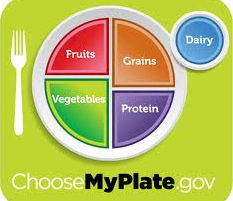USDA’s MyPlate and the Farm Bill
May May Leung, PhD, RD is an assistant professor at the CUNY School of Public Health at Hunter College. Her research expertise includes the development and evaluation of innovative health communication and community-based interventions to prevent childhood obesity.
The new MyPlate food icon, which the federal government released this past June, makes a recommendation for Americans to fill half their plate with fruits and vegetables. Unfortunately, such messages that promote knowledge and awareness are not the only mechanisms needed for people to carry out such healthy behaviors. A necessary mechanism, yet a pressing obstacle for many Americans, particularly the vulnerable populations, is the limited access to affordable fruits and vegetables. This barrier has come about, mainly due to the imbalanced distribution of federal agricultural subsidies. According to the Physicians Committee for Responsible Medicine, 63% of the subsidies support meat and dairy production, while less than 1% supports fruits and vegetables. Other subsidies include, 20% allotted for grains and 15% for sugar, starch, oil and alcohol. As you can see, the subsidies rather contradict the recommendations supported by MyPlate.
So, what can be done? The Farm Bill, which is the primary agricultural and food policy tool of the federal government, provides the support for different agricultural commodities. It is renewed every five years and the next one is scheduled to pass through Congress in 2012. The upcoming Farm Bill needs to be reformed to shift the subsidies to be more aligned with the MyPlate recommendations, which would improve the accessibility and affordability of fruits and vegetables, and making it more likely for the recommendations to be adopted as healthy behaviors. Mark Bittman expressed this sentiment quite nicely in the New York Times, “What subsidies need is…reform that moves them forward. Imagine support designed to encourage a resurgence of small- and medium-size farms producing not corn syrup…but food we can touch, see, buy and eat – like apples and carrots …” I can imagine it, can you? May May Leung, PhD, RD
May May Leung, PhD, RD is an





